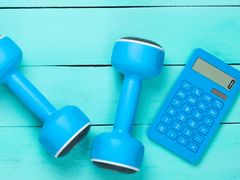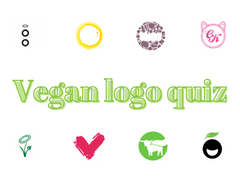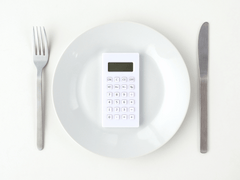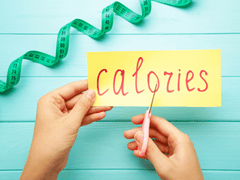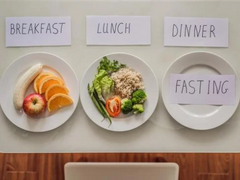Why Going Vegan Won’t Lead to Protein Deficiency

When people think about veganism, the first thing that tends to come to mind for many of them is living off of only fruits and vegetables. Another is belief in the myth that going vegan will eventually lead to health issues like protein deficiency. But, experienced vegans know better.
In this blog post, we'll take a closer look at veganism and protein deficiency to see if there's any truth to these rumours. First, we'll discuss what protein is and then we'll explore how much protein we need per day. We'll also explore some of the best plant-based sources of protein to help you get all the nutrients your body needs.
All About Protein
Protein is a key nutrient that plays a vital role in our cells’ functions. Protein is made up of amino acids and is necessary for tissue repair and body immunity.
Because many plants are rich in protein, we can take in all the amino acids we need from whole grains, vegetables and legumes. Quinoa and beans, for example, are rich in lysine, an essential amino acid.
Plant proteins also come with fibre, enzymes, and phytochemicals that can fight cancer. Additionally, as plants are low in fat and cholesterol, a plant-based diet can offer and advantage in preventing life-threatening diseases.
How Much Protein Do We Need?
According to the Mayo Clinic, we should get 10-35% of our daily calories from protein to have a balanced diet. For normal, healthy adults, the Recommended Dietary Allowance (RDA) for protein is 0.8 grams per kilogram of body weight. Women that are pregnant or nursing, however, require increased amounts of protein. Equally, if you're looking to build additional lean muscle you will need extra protein in your diet, possibly up to 1.5g per kilogram of bodyweight.
Typically, people that have a sufficient daily caloric intake and a varied diet, having a protein deficiency is extremely unlikely.
How to Know if You Have Protein Deficiency
It’s more difficult to recognise protein deficiency during early onset, but those with a history of this condition exhibit common symptoms such as swelling, a fatty liver, flaky or reddish skin, and weak nails and hair. Side effects of a protein deficiency include a decrease in muscle mass, heightened vulnerability to bone fractures, and a weaker immune system. Children could also experience stunted growth due to protein deficiency.

What’s a Typical Vegan Diet?
A vegan diet consists of plant-based foods but doesn’t include meat, eggs, fish, poultry or dairy products. For the healthiest vegan diet it is best to rely on whole foods and to minimise processed foods. However, for those with limited amounts of spare time for food preparation, or lacking skills in the kitchen, the supermarkets are increasingly filled with a wide range of prepared, vegan-friendly foods, many of which are particualrly high in protein.
Food sources that comprise a healthy vegan diet are rich in protein as well as vitamin D, calcium, vitamin B-12, omega-3 fatty acids, iodine, zinc, and iron. This is sufficient to meet the NHS’s daily caloric intake recommendations, which is approximately 2,000 per day for women and around 2,500 for men.
The Verdict: Can a Vegan Diet Give You Enough Protein?
Spoiler alert: yes, it can! According to a study published in the scientific journal Nutrients, the typical vegan diet offers “more than adequate” amounts of amino acids and protein. The study notes that there’s no evidence that lower protein content in vegan diets causes adverse health effects, provided that there’s a variety of food sources.
Insufficiencies in protein intake may occur when vegan diets don’t include protein-rich sources like legumes, seeds, and nuts. Older people might also require additional sources of protein to ensure nitrogen balance. Children, however, can get just the right amount of protein from plant-based food to support their growing bodies.
Step Up Your Protein Game
A vegan diet may be enough to support our caloric needs, but boosting protein intake will help prevent serious health issues down the line. Vegans should consider good sources of protein such as tofu, seitan or wheat gluten, hemp seeds, and buckwheat. Other protein-rich foods include nuts, quinoa, green peas, and beans such as split peas and lentils. A plant-based protein shake or protein snack could also help fill your body’s need for amino acids.
For those who aren’t into nuts or beans, protein powders are the way to go! Besides being more digestible, protein powders are rich in lysine and can provide approximately 20 grams of protein for every serving. Experts also recommend drinking soy milk, which has a higher lysine count compared to almond milk.
Vegan Life is Awesome, But Don’t Forget Your Protein!
When it comes to health, it pays to avoid complacency - no matter your age, you’ll never know what could prevent your body from functioning properly in the long run! Even though a well-balanced vegan diet is enough to obtain the essential nutrients, you still need to make sure that you get enough protein every day to continue being your best healthy self.
How Do I know If I Am Getting Enough Protein?
It can be challenging trying to remember what foods you've eaten and to track the amount of protein you've consumed. That's why we recommend MyFitnessPal. It's free to join and use and it is the easiest way we've seen to keep track of your calorie intake and view your split of macronutrients (fat, protein and carbohydrates).






